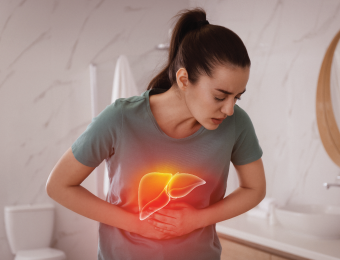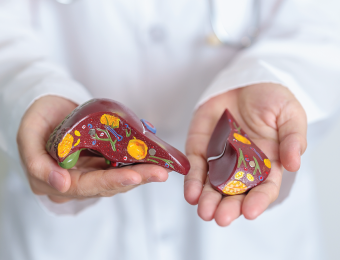
The 5 Delicious Foods with High Risk of Colorectal Cancer
Jittpat Thanomteeranunt, M.D.
- Grilled Wagyu Beef and Pork Kurobuta
The more marbling, the tastier it is. This popular dish is a risk factor for colorectal cancer because not only does it have high saturated fat content, but beef and pork are also red meats that contain a compound called heme. Consuming a lot of heme can stimulate cancer cells to grow. Moreover, grilling involves cooking with fat dripping onto charcoal, producing smoke that contains Polycyclic Aromatic Hydrocarbons (PAHs), carcinogenic substances. Accumulating in the body from frequent consumption, it leads to chronic inflammation, eventually resulting in colorectal cancer. If this is a favorite dish or unavoidable, it's advisable to trim off the charred parts before consumption. However, it's not recommended to consume excessively and frequently."
- Spicy Crab Salad with Fermented Fish Sauce
This dish boasts a strong, fragrant taste that stimulates the appetite, but the various seasonings used pose a potential risk of carcinogens. Ingredients such as dried chili, garlic prone to mold, as well as salted crab and fermented fish sauce, all carry risks. If not cooked thoroughly, there may be parasites or parasite eggs present that can survive in the human body, leading to liver cancer. Additionally, it's important to note that fermented fish sauce may contain saltpeter for food preservation, which contains nitrosamines, known to be potent carcinogens. Therefore, consuming raw fermented fish sauce should be avoided as it increases the risk of exposure to these substances.
- Raw Seafood with Delicious Seafood Dipping Sauce
Raw seafood often contains traces of formalin from preservation methods. Accumulation of formalin in the body can adversely affect the functioning of the liver, kidneys, and heart. Additionally, consuming raw seafood also poses a risk of heavy metal contamination, increasing the risk of cancer. Heavy metals are commonly found in fish such as tuna and mackerel. Ideally, choose seafood with low levels of accumulated heavy metals, such as salmon or shrimp, and opt for cooking methods like boiling or steaming. Avoid grilling until charred, whether the seafood is cooked or consumed raw. One important thing to note is that seafood can be a source of heavy metal contamination.
- Fermented Pork Spicy Salad, Pork Sausage Spicy Salad, Instant Noodle Spicy Salad
These flavorful condiments, popular in local markets, are favorites among those trying to lose weight as they can be satisfying even without rice. However, ordering dishes with these processed condiments may actually increase the risk of cancer. The International Agency for Research on Cancer (IARC) of the World Health Organization (WHO) has found evidence confirming that processed meat, smoke-cured foods, pickled foods, and various preserved foods are more likely to contain carcinogens, particularly those linked to colorectal cancer. Processed foods are often loaded with additives for flavor, color enhancement, freshness, and visual appeal, as well as sodium nitrate and sodium nitrite, which are risk factors for colorectal cancer. If you crave spicy salad, opt for fruit-based ones without salt, garlic, or roasted peanuts. Although less flavorful, they can help reduce the risk of serious diseases.
- Fried Banana, Deep-Fried Dough, Fried Chicken
These crispy, oily delights are irresistible for many, often grabbed as a snack to accompany afternoon work at the computer. However, that handy bag of goodies could potentially trigger cancer cell formation due to the high-temperature frying process, especially when using reused frying oil over time. This can produce Polycyclic Aromatic Hydrocarbons (PAHs), known carcinogens. Regular consumption can lead to their accumulation in the body. Always remind yourself that fried foods contribute to weight gain and increase cancer risk. It's best to consume them sparingly or avoid them altogether. If you can't resist, opt for stores that change their frying oil daily.
03 Mar, 2020

Jittpat Thanomteeranunt, M.D.
Specialties Internal Medicine, Gastroenterology
 EN
EN
 TH
TH CN
CN




